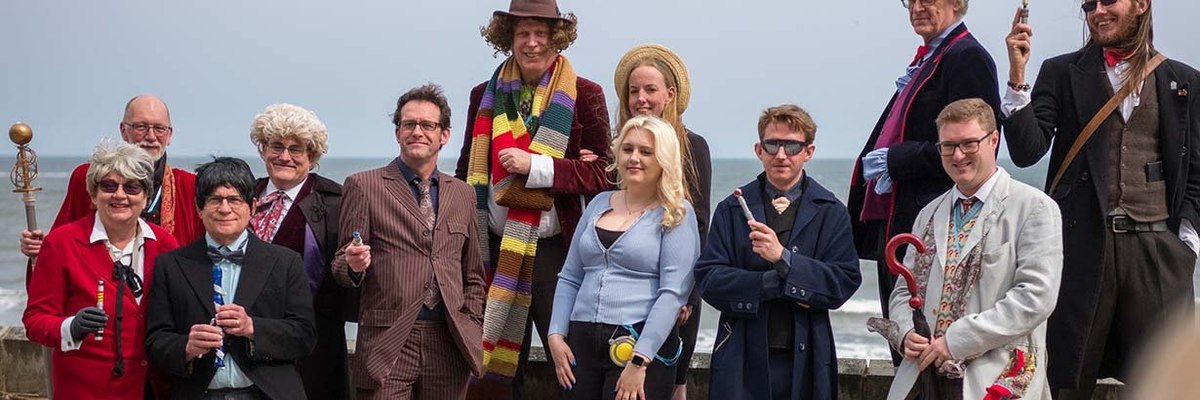Most Britons see cartoons and Disney as being for children, but tend to see Doctor Who and theme parks as being as much for adults as kids
In recent years, there’s been growing discussion of people ‘kidulting’, whereby people maintain hobbies or interests they held as children long into adulthood. For instance, there’s the phenomenon of Disney adults, who have continued to love the films they grew up with, including continuing to collect merchandise and even dress-up as their favourite characters.
For some, this is mere childishness; for others, these things were never solely for children in the first place, so why give them up. But where do Britons draw the line? A new YouGov poll identifies which ‘kidult’ activities and interests the public see as more for children and which it’s okay for adults and children to equally enjoy.
Sitting decisively in the ‘for kids’ column is having stuffed animals, which 71% of Britons see as being entirely or mostly for children. Also seen as being mainly for kids by a clear majority of Britons are dressing up in costumes (66% saying so), advent calendars (60%), Disney films (57%).
By contrast, more than eight in ten Britons see playing sports recreationally (86%) or playing board games as hobbies (82%) as being equally for adults as they are for children, with 76% also saying so of collecting things. Eating sweets also sits in this category for many, with 72% of Britons saying kids and grown-ups can equally love them so.
On many other of the hobbies and activities polled, Britons are more divided. Lego, for instance, splits the public 49% to 48% over whether it’s primarily for children or is equally for children and adults. While just over half of Britons (51-53%) see watching cartoons or reading comic books as being more for children, more than four in ten (41-44%) see them as being as much for adults.
Britons tend to see Star Wars (54%), Harry Potter (50%) and Doctor Who (48%) as being equally for adults and children, but while 43% of the public instead see Harry Potter as being inherently childish, just 22% say the same of Doctor Who and 16% of Star Wars, with 21-26% actually seeing the science fiction franchises as being more for adults.
Lord of the Rings is seen as even more grown-up, with 43% of Britons believing it’s mostly or entirely for adults, while a similar 39% feel it’s equally for children too. Dungeons and Dragons also leans more towards being seen as an adult hobby, with 30% seeing it as mostly for adults, 27% as equally for adults and children and just 15% believing it’s mostly for children.
Clear majorities of Britons see visiting theme parks (62%), being interested in dinosaurs (59%) and playing video games (54%) as being equally okay for children and adults to enjoy, though around a third (32-35%) see them as really being children’s activities or interests.
Do younger Britons see ‘kidult’ hobbies as less childish than older Britons?
Millennials have usually been seen as being at the centre of the ‘kidult’ trend, but it’s not consistently the case that younger Britons are less likely to see these hobbies and interests as inherently childish.
For instance, a small majority of all age groups (52-54%) see watching cartoons as being more for children, while between 61-68% of all age groups say the same of dressing up in costumes, and there’s a similarly small difference (27-35%) between the youngest and oldest age groups when it comes to whether video games are just for children.
But there are some cases where younger Britons are indeed less likely than older Britons to see something as being primarily the preserve of kids. Just 38% of 18-34 year olds, for instance, see comic books as being mainly for children, relative to 66% of over 65s, while only around half of 18-34 year olds (48%) see advent calendars as mostly or entirely for children, compared to 70% of over 65s.
Attitudes to birthday celebrations are a particular source of generational division, with 18-34 year olds 22 points less likely than over 65s to see receiving birthday presents as being for children (14% vs 36%) and 20 points less likely to see birthday parties as being inherently childish (33% vs 53%).
Likewise, just a quarter of 18-34 year olds (24%) see visiting theme parks as being primarily for children, compared to 44% of over 65s, while 16-17 point differences exist between 18-34 year olds and over 65s when it comes to playing with Lego, being interested in dinosaurs or eating sweets.
Women tend to be less likely to see childhood hobbies as exclusively for children
Women tend to be less likely to see these activities or interests as mostly or entirely for children. For instance, nearly six in ten men (57%) see birthday parties as primarily for children, compared to just a third of women (34%).
In most cases, this difference is made up by women being more likely than men to see the activity or interest as equally for children or adults. Doctor Who is an exception here: while men are twice as likely to see the programme as primarily for children (30%) than primarily for adults (15%), women are roughly twice as likely to see the adventures in time and space as more for adults (27%) than more for children (14%).
Bucking the trend in a different way is being interested in dinosaurs, which women are more likely (39%) than men (33%) to see as being mostly for children.
Do you think Harry Potter or Doctor Who are for children? What do you think about childhood in general, and everything else? Have your say, join the YouGov panel, and get paid to share your thoughts. Sign up here.
Photo: Getty


















